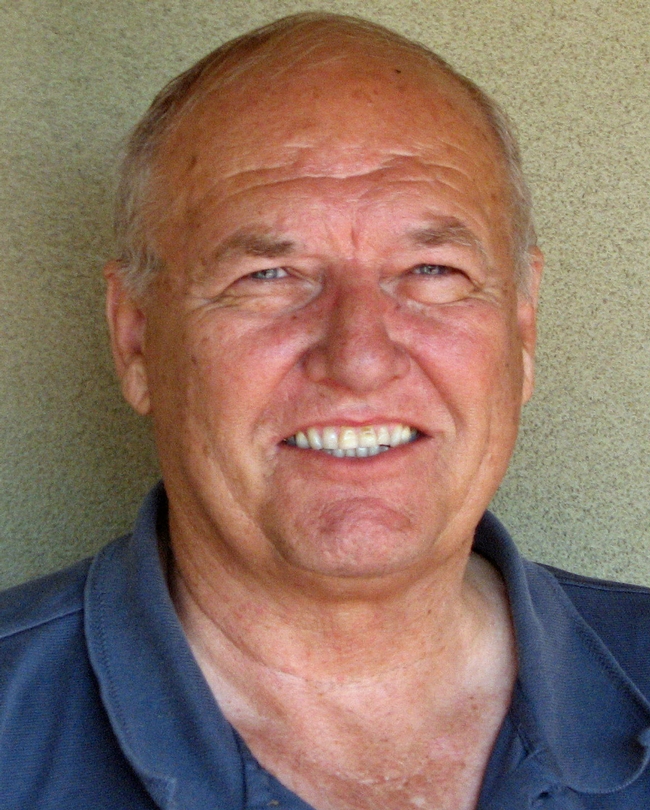
The Selma native was raised on a farm, where his family produced fruits and vegetables for sale at Highway 99 fruit stands. McKenry earned his degree in soil science with a biochemistry minor at California Polytechnic State University, San Luis Obispo, in 1966, where his senior project targeted the microscopic soil-borne true round worms that would shape his career.
“Very few farmers knew much about nematodes at the time,” McKenry said. However, the pest was causing serious damage and yield loss, especially when crops were replanted into previously farmed land.
After serving as a vocational agriculture teacher in Yucaipa, a town east of San Bernardino, and conducting field trials with his students, McKenry was offered the opportunity to study nematodes at UC Riverside. He obtained his Ph.D. in 1972 and was soon appointed by UC Riverside to his nematology research position at Kearney.
McKenry said his research focus changed with the times. The first two decades, he studied the movement of fumigants and other pesticides in soil, and the timing and placement for nematode congregation under trees and vines. Equally important were his activities to develop newer methods to assure that California’s nursery stocks would remain nematode-free.
“As drip systems evolved, we encouraged farmers to pay more attention to the root flush in order to be more efficient with whatever treatments they used,” McKenry said.
Increasingly stringent regulations and bans on the use of certain fumigants began to turn nematologists’ attention to reduced rates using timing and placement as well as botanically derived alternatives to synthetic products. McKenry noted an unreported biological control process under way at Kearney where certain naturally occurring fungi and bacteria were lethal to nematodes.
“We’ve been working on that for 40 years,” McKenry said. “We’re still missing pieces, but the potential and limitations are better understood.”
During this period, McKenry also developed a portable drenching system that reduced off-gassing of soil fumigants and led the way for pre-plant delivery of degradable nematicides deep into soil.
The next 20 years was the period of rootstock exploration. Grape rootstocks that had been released in the 1960s were losing their resistance to nematodes in the 1980s. McKenry and his staff evaluated as many as 1,000 potential grape rootstocks from around the world. This was followed by evaluation of 100 peach and almond rootstocks and then thousands of potential walnut rootstocks.

More recently, McKenry identified the first effective nematode treatment that in very low doses could be sprayed onto leaves of trees and vines. This new chemistry was hidden away as an insecticide. Thousands of soil samples evaluated by McKenry and his research team at UC reported that if farmers followed a few guidelines, their yields could be boosted 10 percent to 20 percent.
In all, McKenry has written more than 250 research papers, half of them in pest management manuals, the other half peer-reviewed conference proceedings, book chapters and research journals.
Even though he will retire this summer, McKenry said he plans to continue with a few special projects.
“There is so much yet to be done,” he said.
He said he also looks forward to having more time to spend at his coastal home in Cayucos while continuing his worldwide travels.